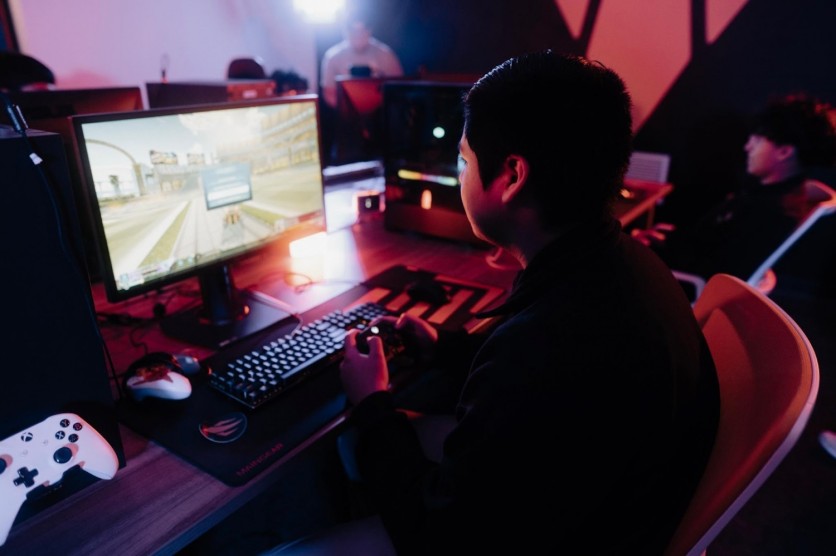
When gaming systems made their way into homes in the 70s, who knew that those friendly Space Invaders competitions with the neighborhood kids would evolve into a multi-billion dollar industry? By 2029, the competitive gaming industry known as esports is estimated to produce an annual revenue of $5.48 billion.
Although the concept of esports is not new, its early beginnings on the campus of Stanford University in 1972 may surprise some. This year the school's Artificial Intelligence Laboratory celebrated the 50-year anniversary of the inaugural event, where participants were invited to play Spacewar and competed for a subscription to Rolling Stone Magazine. Today's esports games are a far cry from the 15 players invited to that first event. Many of the larger-scale competitions today boast thousands of registered entrants.
Generation Esports, the professional gaming tournament platform for schools, businesses, clubs and communities, understands the critical connection between esports and education. The mission of the company that's been around since 2012 is to provide a platform for scholastic gaming that supports the positive impact of video games in schools.
According to their website, they currently run the largest league for high school esports competitions and are rapidly growing their middle school and college leagues.
As a company focused on academic achievement, Generation Esports sets itself apart from the more commercialized forms of esports competitions that operate outside of academia. While the spirit of competition is a foundational component of esports, Generation Esports designed its platform to foster community and encourage academic success at all educational levels.
Gaming Concepts, the company's STEM-accredited courses program, offers schools a way to integrate scholastic gaming experiences into the classroom. Through their STEM and CTE peer-reviewed curriculum, esports training programs, and tournament passes, students learn about gaming, computer parts, design, content creation and more.
For educators, Gaming Concepts provides teachers with a library of training programs that show them how to teach students important life skills through gameplay. This includes training in the areas of the mind, health, esports teams and tournaments. Coupled with Gameplan's interactive learning management system makes incorporating gameplay into a daily instruction plan simple.
The Gaming Concepts courses are developed with a child's social and cognitive development in mind. Student participants receive many of the following benefits:
Improved attendance and grades
Improved grade point averages for students and attendance
Increased student engagement
Improved extracurricular activity participation
Focus on mental health
Purposeful play
Purposeful screen time
CTE pathway
Career readiness preparation through STEM and CTE engagement
Beyond academic success, Generation Esports understands the importance of health and safety in gaming, so they've ensured that each course they offer includes a special focus on mental health. Providing students with a controlled environment for gameplay is critical, so students learn about screen time limits and social responsiveness through:
Self-Awareness
Self-Management
Social Awareness
Responsible Decision Making
Dr. Kristy Custer, President of Educational Innovation at Generation Esports says this about gaming in the classroom:
So many times, young people are given cell phones, computers, and gaming devices without any type of instruction other than basic function and, 'Don't get on any sites you're not supposed to be on!' and 'Don't get too much screen time!' When they get to school, the rule is, 'Put it away during class!' Then, we wonder why kids misuse these devices. The best way to teach students how to use digital devices is when they are actually using them in a real-world scenario. When students are in a match and someone says something inappropriate to them, that's a perfect time to have a discussion about what they should do in response. Perhaps not responding is the response. Having a knowledgeable, safe, attentive adult in the room when students are playing and learning to play video games or interact on their digital devices is the ideal scenario to help students really buy into digital citizenship in an authentic way.
Generation Esports and their Gaming Concepts curriculum is gaining traction in many schools with positive feedback, like this comment from Brittany Jones, Gaming Concepts Teacher, Hoopa Valley High School:
"We started the class with 15 computers, and I had a (Gaming Concepts) class with 25 kids. Kids wanted to be in that class so bad they were sitting in the corner on their cell phones doing the lessons because they were like, 'No! We want to stay in here!' Now, we have a waiting list with like 100 kids."
Kids need a place to be seen and heard. With so many unhealthy influences vying for their attention, Generation Esports and its Gaming Concepts courses provide teachers with a way to connect with students on their level. The gaming format not only meets them where they are (relevancy) but also provides a safe space for them to develop necessary life skills while having fun playing the games they love.
To learn more about Generation Esports and Gaming Concepts, their STEM-accredited courses program, visit their website.
The Generation Esports platform has given away hundreds of thousands of scholarships to students that encourage and support scholastic gameplay and peer engagement. They offer Gaming Concepts, a STEM-accredited curriculum designed to teach students important life skills through gameplay. The program is headed by Dr. Kristy Custer, President of Educational Innovation, and Dr. Michael Russell, President of Education and Esports Integration.
ⓒ 2025 TECHTIMES.com All rights reserved. Do not reproduce without permission.




